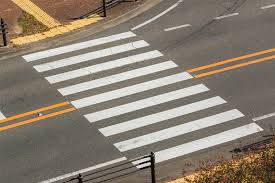Can a Pedestrian Be Legally Liable for a Car Accident?

You probably know that insurance is required to operate a vehicle in Nova Scotia, and that in the case of a car accident, you should be sure to exchange insurance information with any other drivers involved in the accident. But what happens when a car accident involves a pedestrian? Can a pedestrian be found legally responsible for an accident? When a pedestrian is hit by a car, who pays?
When a pedestrian is hit by a car, it is no surprise that it is almost always the pedestrian who “loses”. Unfortunately, the pedestrian is often severely injured. Therefore, the question in these cases is usually not one of damages, or whether the pedestrian has suffered a loss. Rather, the central question is usually one of liability, or who is at fault for the accident.
Pedestrians have a responsibility to take reasonably safe steps
Both drivers and pedestrians in Nova Scotia have legal responsibilities to use the road safely. Under Nova Scotia law, a pedestrian has the right of way if they cross within a crosswalk. However, a pedestrian must yield to vehicles if they cross outside a crosswalk. The law also says that a pedestrian must not step out into the road if an approaching vehicle is too close to stop.
A pedestrian may be found to be partially at fault for an accident on the basis of the legal principle of “contributory negligence” – this means that the actions of the pedestrian makes them partially at fault for the accident. Some examples of pedestrian actions that could lead to a finding of contributory negligence are jaywalking, crossing against a light, texting while crossing the road, or otherwise being distracted.
A driver who hits a pedestrian will usually be found to be at least partly at fault for the accident due to not keeping a proper look out and stopping in time to avoid hitting the pedestrian. Other factors that can contribute to a finding of fault against a driver include speeding, texting while driving, and intoxication.
What does this mean for car accident insurance claims?
Contributory negligence can affect the compensation you ultimately receive for the harms you have suffered. If you are found to have contributed to causing the accident, your damages will be decreased accordingly. For example, if you are found to be 30% at fault for the accident, the damages you ultimately receive would be reduced by 30%, compared to what you would otherwise be entitled to.
What if you are a driver who has been involved in a collision, and you think a pedestrian was at fault for your injuries? In theory, if a pedestrian is responsible for an accident, you can commence a lawsuit against them, just as you could against another driver who caused an accident. Practically, however, you may have a hard time recovering compensation from a pedestrian who is at fault. This is because unlike driving, there is no insurance for walking and even if a pedestrian is completely at fault, it may be difficult to recover any money from the individual.
Drivers who have been injured in these circumstances should remember that their own car insurance will provide for a certain amount of compensation for treatment necessary for their recovery.






















